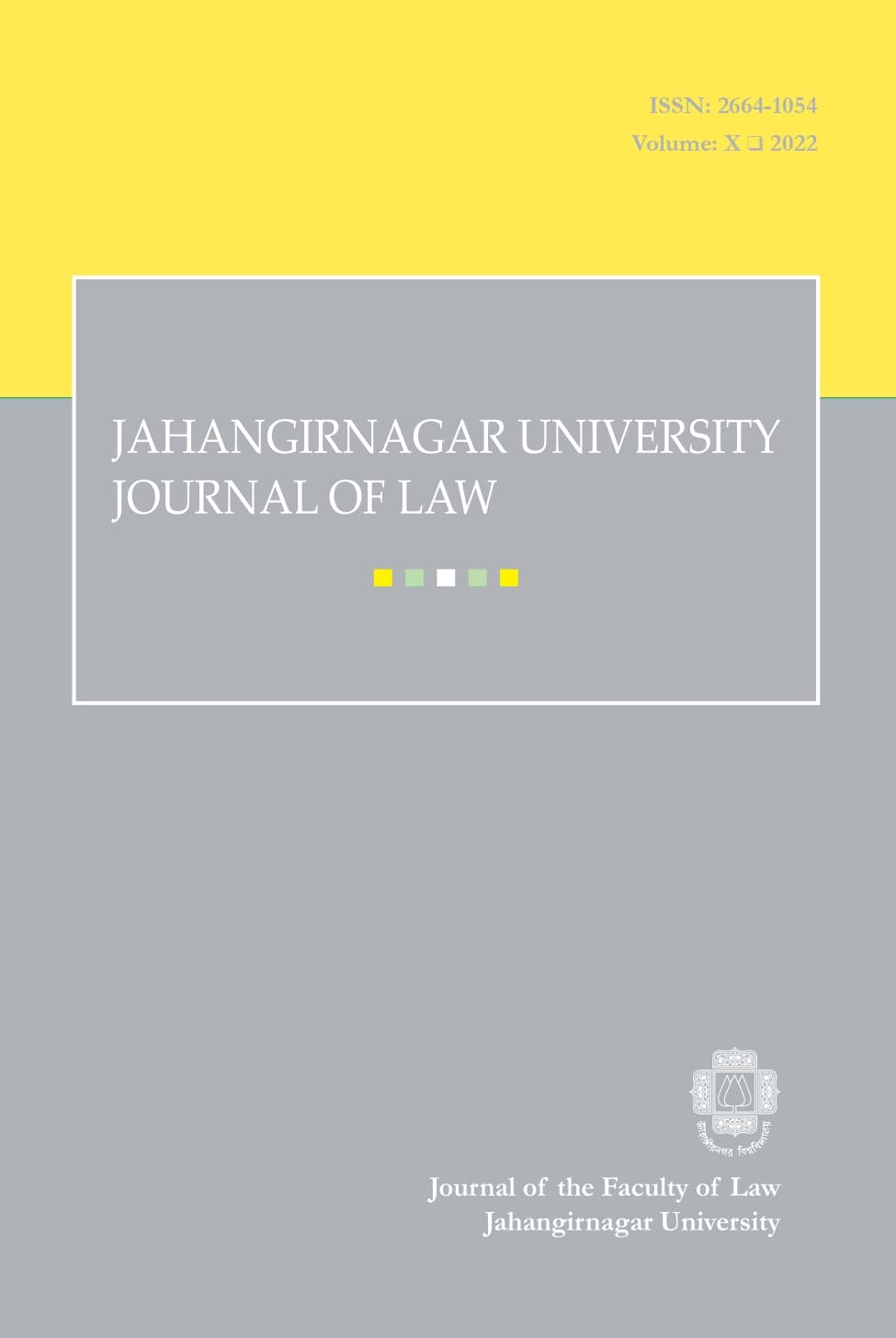Online Dispute Resolution in Bangladesh
Main Article Content
Abstract
Online Dispute Resolution (ODR) allows individuals to resolve disputes according to their convenient time without travelling to the courtyards and enjoying some flexibilities in compliance of complex and time-consuming procedural issues that are mandatory in traditional court or alternative dispute resolution process. Therefore, ODR is seen as increasingly important and compatible mechanism of dispute resolution since it is inexpensive and can provide service anytime anywhere. Particularly, emergency arrangement of virtual court during the pandemic of COVID-19 strengthens the reasons for accommodating ODR in the legal system of Bangladesh. However, ODR systems, alongside the traditional dispute resolution process, have been developing in many parts of the world since the time before emergencies created by this pandemic. The reason is that ODR has the potential and sufficient evidence to concurrently run with the traditional justice system as well as modernising the latter. This paper, therefore, argues for accommodating the technology assisted dispute resolution process applicable for all kind of disputes within the existing legal framework of Bangladesh, but not replacing the traditional justice system as a whole. To this purpose, it tries to broadly analyse the feasibilities of setting ODR under the existing legal setup of Bangladesh along with the challenges that might be faced in implementing it.

